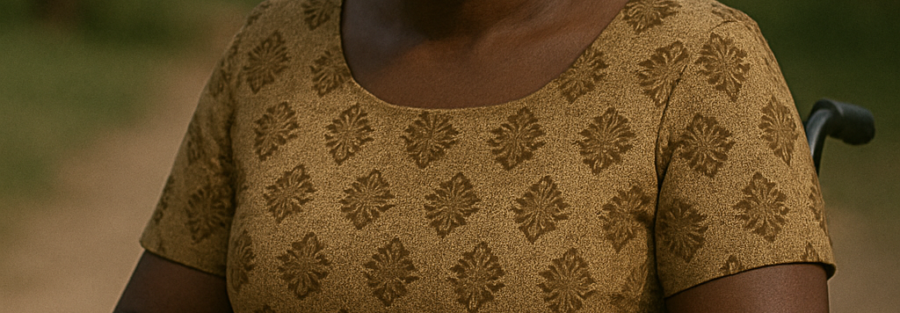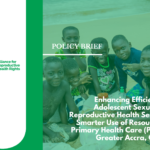Globally, over one billion people live with some form of disability, with women comprising nearly half of this population (World Health Organization [WHO], 2021). Women with disabilities face a disproportionate burden in accessing health care services, largely due to intersecting factors such as poverty, discrimination, inaccessible infrastructure, and limited availability of tailored health services. The global disability and development agenda increasingly emphasizes the urgent need for inclusive health systems that address gender and disability-related disparities.
In Africa, systemic challenges further widen the gap in health care access for women with disabilities. Structural barriers, including inadequate health financing, physical inaccessibility of facilities, negative provider attitudes, and lack of disability-sensitive services, remain widespread (Eide & Loeb, 2016). For example, many health professionals across African countries receive minimal training in disability-inclusive care, resulting in stigmatizing experiences that deter women with disabilities from seeking necessary care, especially reproductive and maternal health services.
In Ghana, similar patterns are evident. Although the country has made progress through policies like the Persons with Disability Act, 2006 (Act 715), implementation challenges persist, particularly in the health sector. Studies show that women with disabilities in Ghana are more likely to experience discrimination in health facilities, with some reporting that health workers ignore or ridicule their concerns during consultations (Badu et al., 2016). Furthermore, the inaccessibility of public hospitals, limited sign language interpreters, and lack of assistive devices restrict their ability to independently navigate health services (Naami, 2015).
For instance, a qualitative study conducted in the Northern Region of Ghana found that women with physical disabilities often relied on family members to carry them to clinics due to the lack of ramps and accessible transportation, which compromises their privacy and autonomy (Agbenu & Amponsah, 2018). In another study in the Ashanti Region, women with visual impairments reported challenges in accessing sexual and reproductive health information due to non-inclusive communication methods, affecting their ability to make informed decisions (Mogga et al., 2020).
Addressing these disparities requires not only infrastructural reforms but also targeted investments in disability-inclusive training for health professionals, as well as the integration of disability perspectives in reproductive and maternal health programming. Organizations like ARHR demonstrate that change is possible when the needs of marginalized groups are placed at the center of health and development strategies. Moving forward, Ghana must scale up such inclusive efforts to truly realize health for all. Without deliberate action, women with disabilities in Ghana and across Africa will continue to face exclusion from essential health services.
References
Agbenu, E., & Amponsah, M. O. (2018). Access to health care by persons with disabilities in the Tamale Metropolis. Disability, CBR & Inclusive Development, 29(1), 5-21.
Badu, E., Opoku, M. P., & Appiah, S. C. Y. (2016). Attitudes of health service providers: A barrier to disability and health care in Ghana. Journal of Social Work in Disability & Rehabilitation, 15(1), 1–21.
Eide, A. H., & Loeb, M. (2016). Living conditions among people with disabilities in developing countries. SINTEF.
Mogga, A. D., Asibey, B. O., & Frimpong, K. (2020). Challenges of sexual and reproductive health service utilization among visually impaired women in Ghana. Reproductive Health, 17(1), 1–9.
Naami, A. (2015). Disability, gender, and employment relationships in Africa: The case of Ghana. African Journal of Disability, 4(1), 1-11.
World Health Organization. (2021). World report on disability. https://www.who.int/publications/i/item/9789241564182



